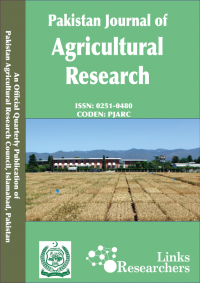IMPACT OF FERTILIZER USE ON WEED MANAGEMENT IN CONSERVATION AGRICULTURE - A REVIEW
Ali Ahsan Bajwa*, Ehsanullah*, Shakeel Ahmad Anjum*, Wahaj Nafees*, Mohsin Tanveer* and Hafiz Salman Saeed*
ABSTRACT
Intensive farming has been adopted to produce large amounts of food grains and cash crops but environment is being deteriorated at alarming rate also. Increased use of fertilizers, pesticides, chemical growth regulators, machinery and poor management practices are accelerating environmental pollution, soil degradation, global warming, climatic change and food deterioration. Conservation agriculture offers a sustainable solution for all these problems most often. This review focuses the use of fertilizers in conservation agriculture and their impact on weed management. Weeds are major constraint in the productivity of agro-ecosystems. Fertilizer use can influence weed emergence, weed persistence, weed dormancy, weed dynamics, weed growth and weed dispersion attributes. The rate, timing, type and method of fertilizer application affect biological trends of weeds. In conservation tillage systems, the interaction between fertilizers and weeds is very complex, and there are reports of positive as well as negative correlations with weed establishment. Altered physical and chemical properties of reduced-tillage soils result in different weed growth and weed-crop competition periods and thus have indirect impacts on weed control strategies and management options in conservation crop production.
To share on other social networks, click on any share button. What are these?







